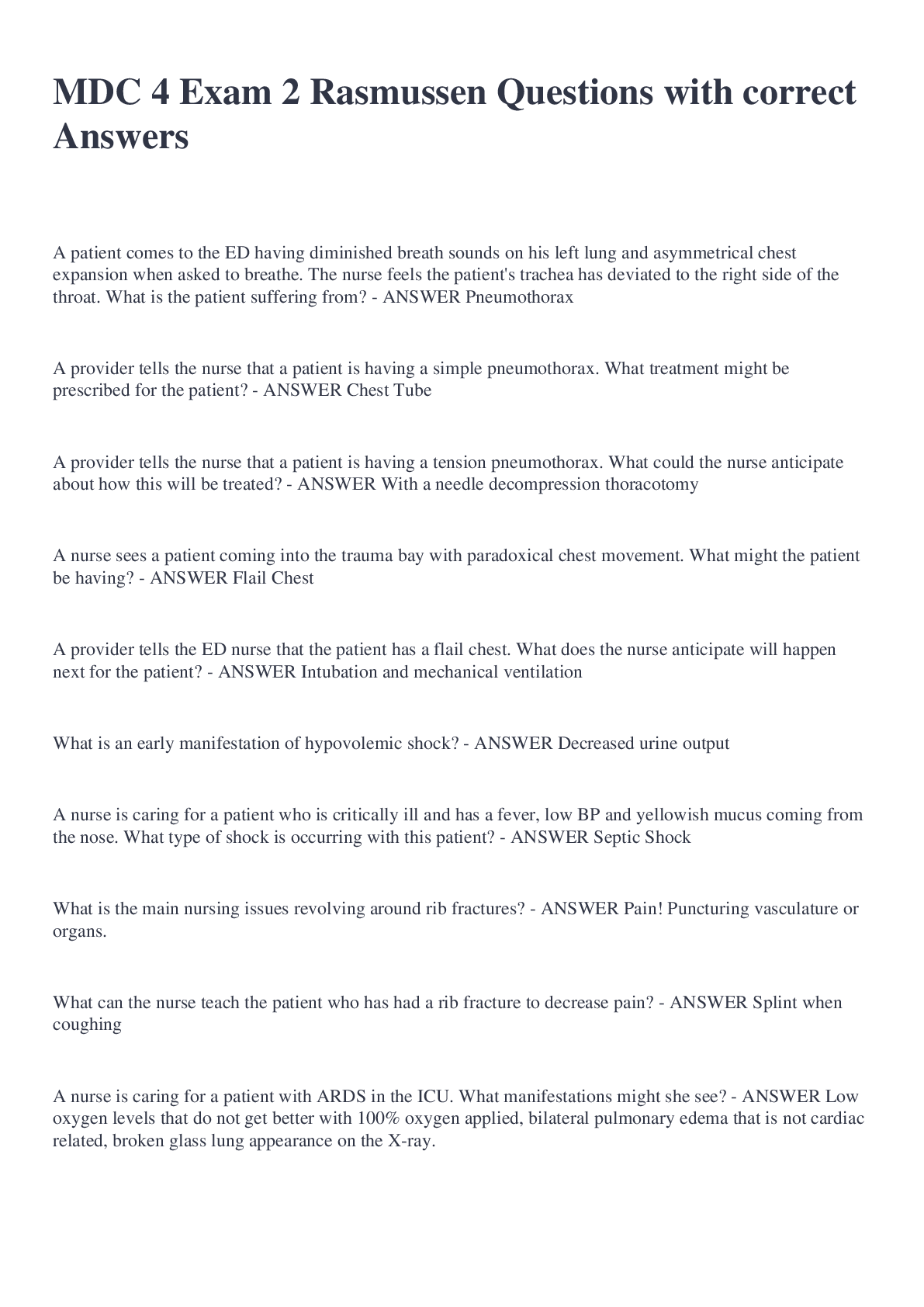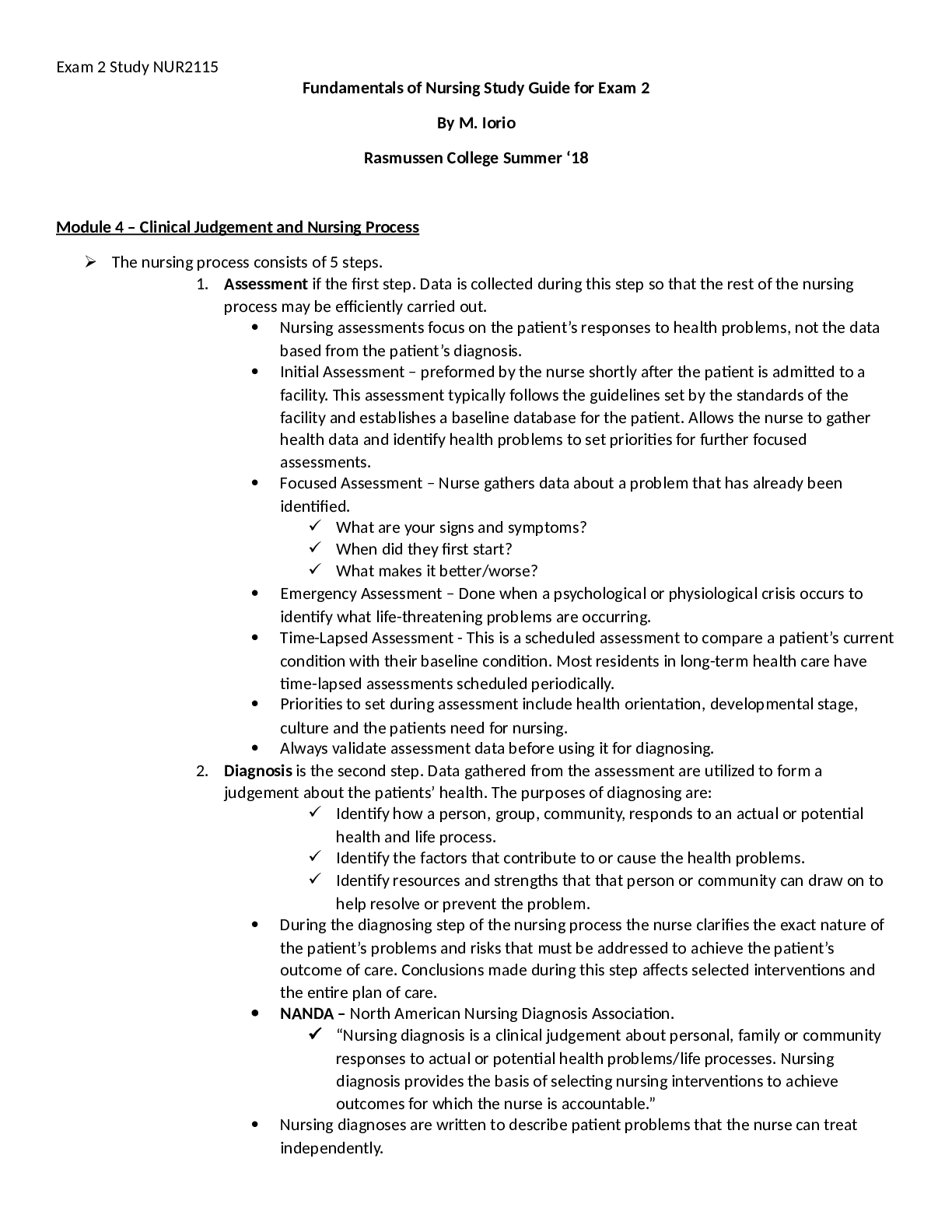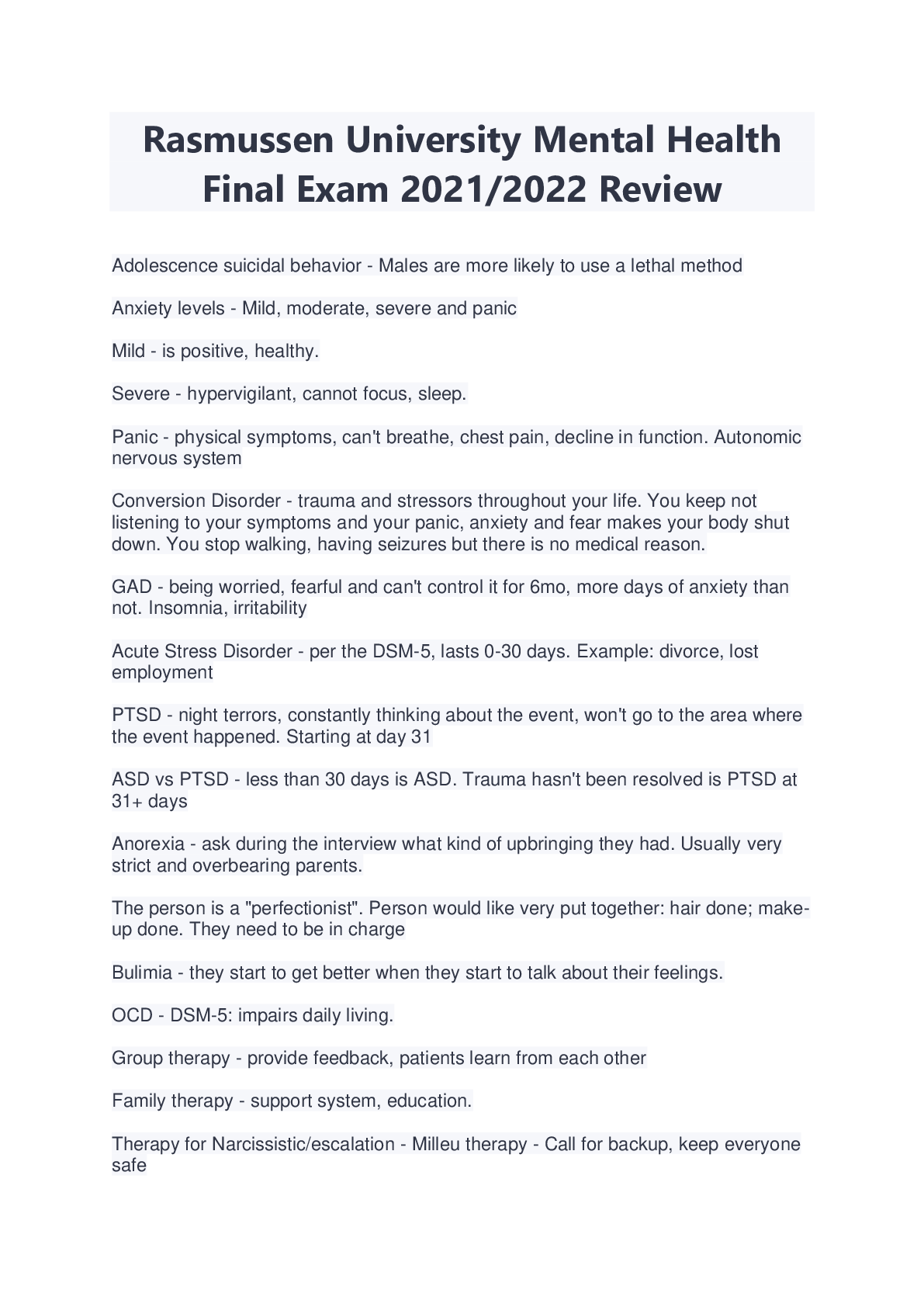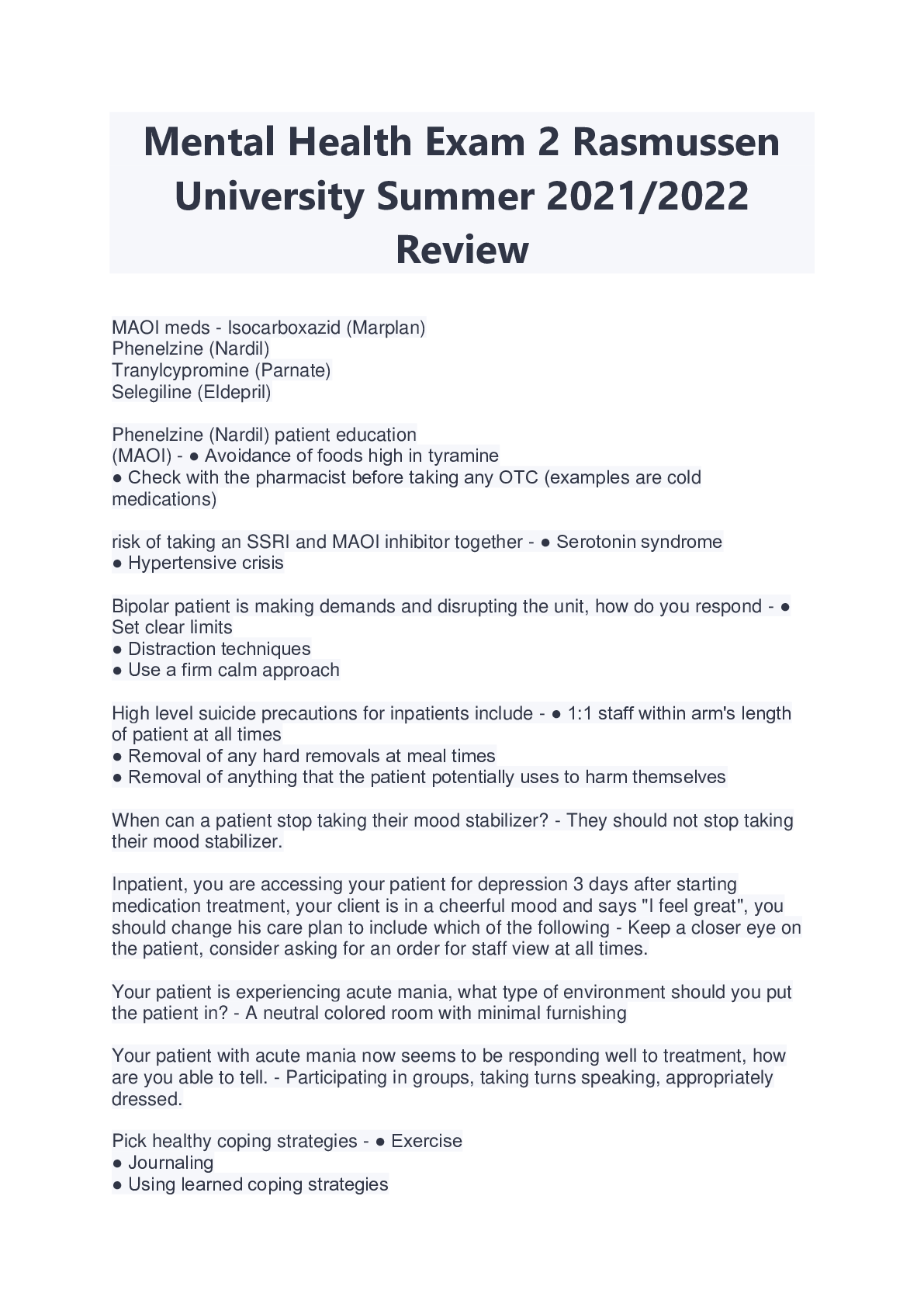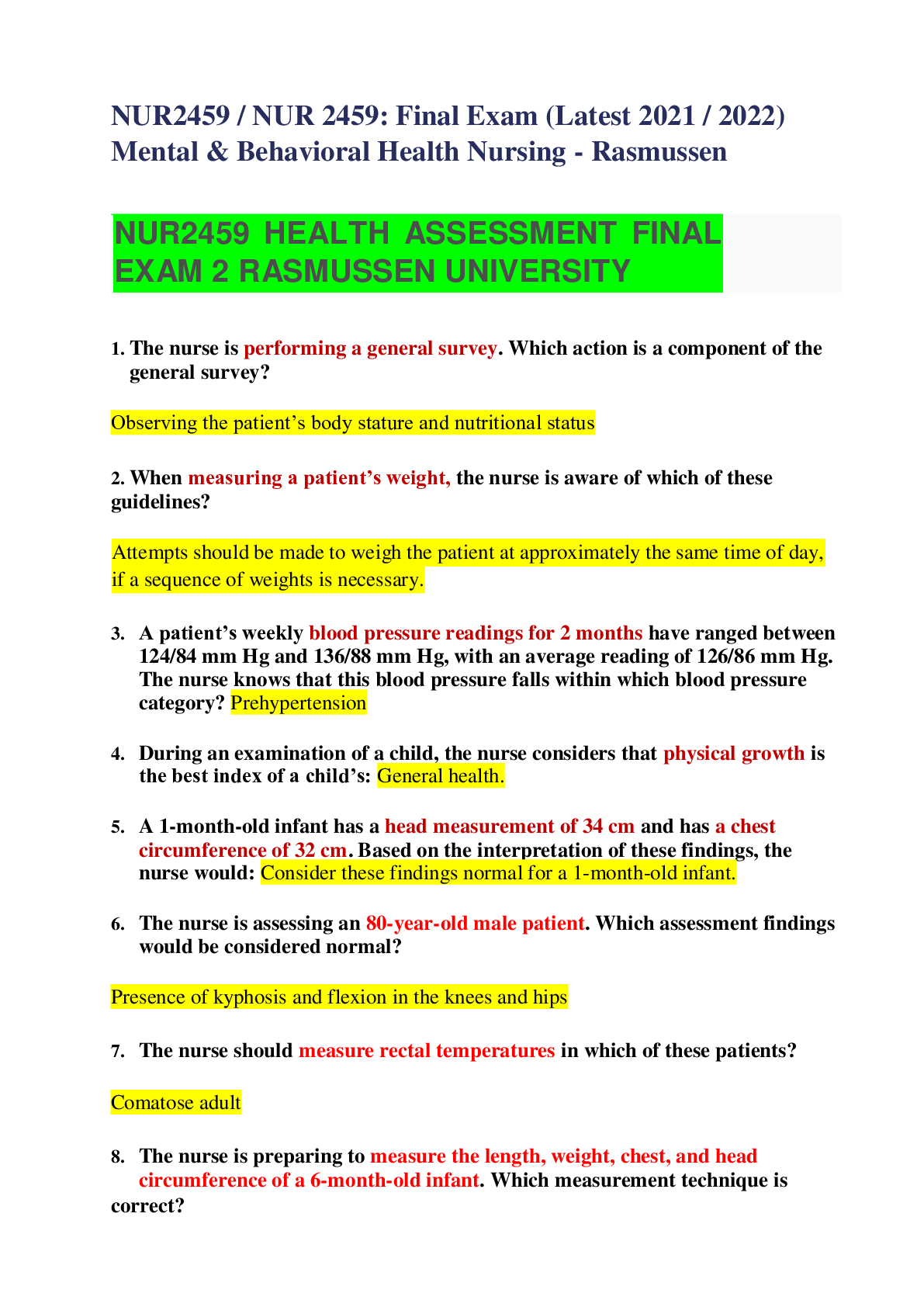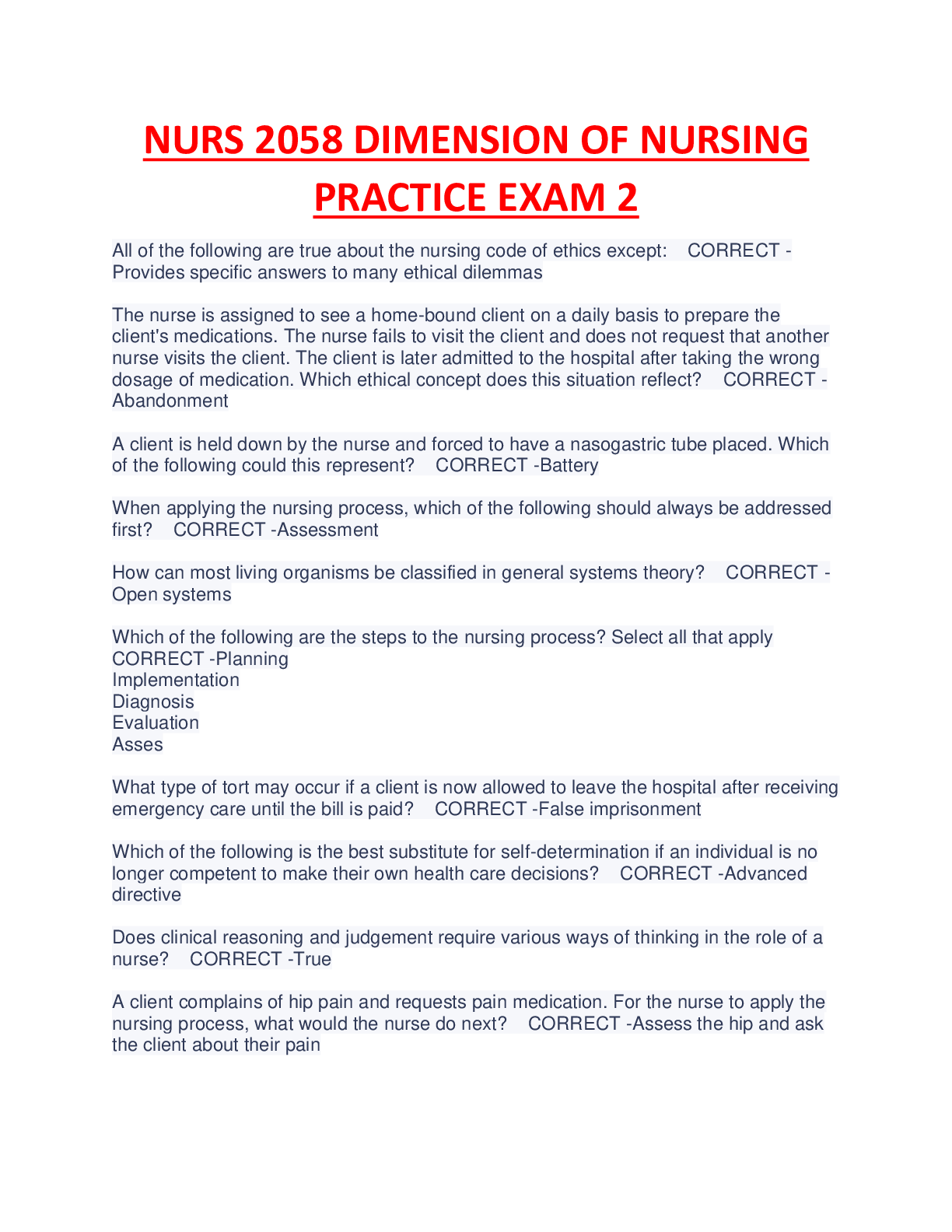NUR 2488 EXAM 2 RASMUSSEN UNIVERSITY MENTAL HEALTH NURSING
Document Content and Description Below
RASMUSSEN UNIVERSITY MENTAL HEALTH NURSING NUR 2488 EXAM 2 • Question 1 Which nursing intervention(s) would be most likely included in a plan of care for a patient with bulimia nervosa... ? Select all that apply. Selected Answers: Assist the patient to identify triggers to binge eating. Explore needs for health teaching. Answers: Assist the patient to identify triggers to binge eating. Provide remedial consequences for weight loss Assess for signs of impulsive eating. Explore needs for health teaching. Response Feedback: For most patients with bulimia nervosa, certain situations trigger the urge to binge; purging then follows. Often the triggers are anxiety-producing situations. Identification of triggers makes it possible to break the binge-purge cycle. Because binge eating and purging directly affect physical status, the need to promote physical safety assumes highest priority. • Question 2 An older adult patient with Alzheimer’s disease lives with family and goes to day care on weekdays. The nurse at the center observed poor hygiene and discussed this observation with the caregiver, the patient’s adult child. The caregiver became defensive and said, “It takes all my time and energy to care for my mother. She’s awake all night. Last night she fell down the stairs.” Which nursing intervention takes highest priority in this case? Selected Answer: Secure additional safety measures for the mother’s evening and night care Answers: Teach the caregiver more about the effects of Alzheimer’s disease Secure additional safety measures for the mother’s evening and night care Support the caregiver to grieve the loss of the mother’s ability to function Teach the family how to give physical care more effectively and efficiently Response Feedback: The patient’s child and her family were coping with care until the patient began to stay awake at night. The family needs assistance with evening and night care to resume their pre-crisis state of functioning. Secondary prevention calls for the nurse to mobilize community resources to relieve overwhelming stress. The other interventions may then be accomplished. • Question 3 Which patient statement would be best documented as a subjective assessment finding supporting a psychiatric diagnosis of dissociative fugue? Selected Answer: “I cannot recall why I’m living in this town.” Answers: “I cannot recall why I’m living in this town.” “I hear a male voice telling me to drink this poison.” “I feel very anxious and worried about my problems.” “I feel like I am on top of the world and want to tell everyone about it.” Response Feedback: The patient in a fugue state frequently relocates and assumes a new identity while not recalling previous identity or places previously inhabited. The distracters are more consistent with paranoid schizophrenia, generalized anxiety disorder, or bipolar disorder. • Question 4 A patient admitted yesterday for injuries sustained in a fall while intoxicated believes the window blinds are snakes trying to get in the room. The patient is anxious, agitated, and diaphoretic. Which medication can the nurse anticipate the health care provider will prescribe? Selected Answer: A benzodiazepine, such as lorazepam or chlordiazepoxide Answers: A benzodiazepine, such as lorazepam or chlordiazepoxide A phenothiazine, such as chlorpromazine or thioridazine A monoamine oxidase inhibitor, such as phenelzine A narcotic analgesic, such as codeine Response Feedback: Sedation allows for safe withdrawal from alcohol. Benzodiazepines are the drugs of choice in most regions because of their high therapeutic safety index and anticonvulsant properties. • Question 5 A patient is pacing the hall near the nurses’ station, swearing loudly. Which of the following best describes how the nurse should address this situation in a therapeutic manner? Selected Answer: “You seem upset. Will you tell me more about it?” Answers: “Please quiet down.” “Hey, you’re too loud. It’s bothering people” “You seem upset. Will you tell me more about it?” “You need to go to your room to get control of yourself.” Response Feedback: Intervention should begin with analysis of the patient and the situation. With this response the nurse is attempting to hear the patient’s feelings and concerns. This leads to the next step of planning an intervention. [Show More]
Last updated: 1 year ago
Preview 1 out of 7 pages
Instant download
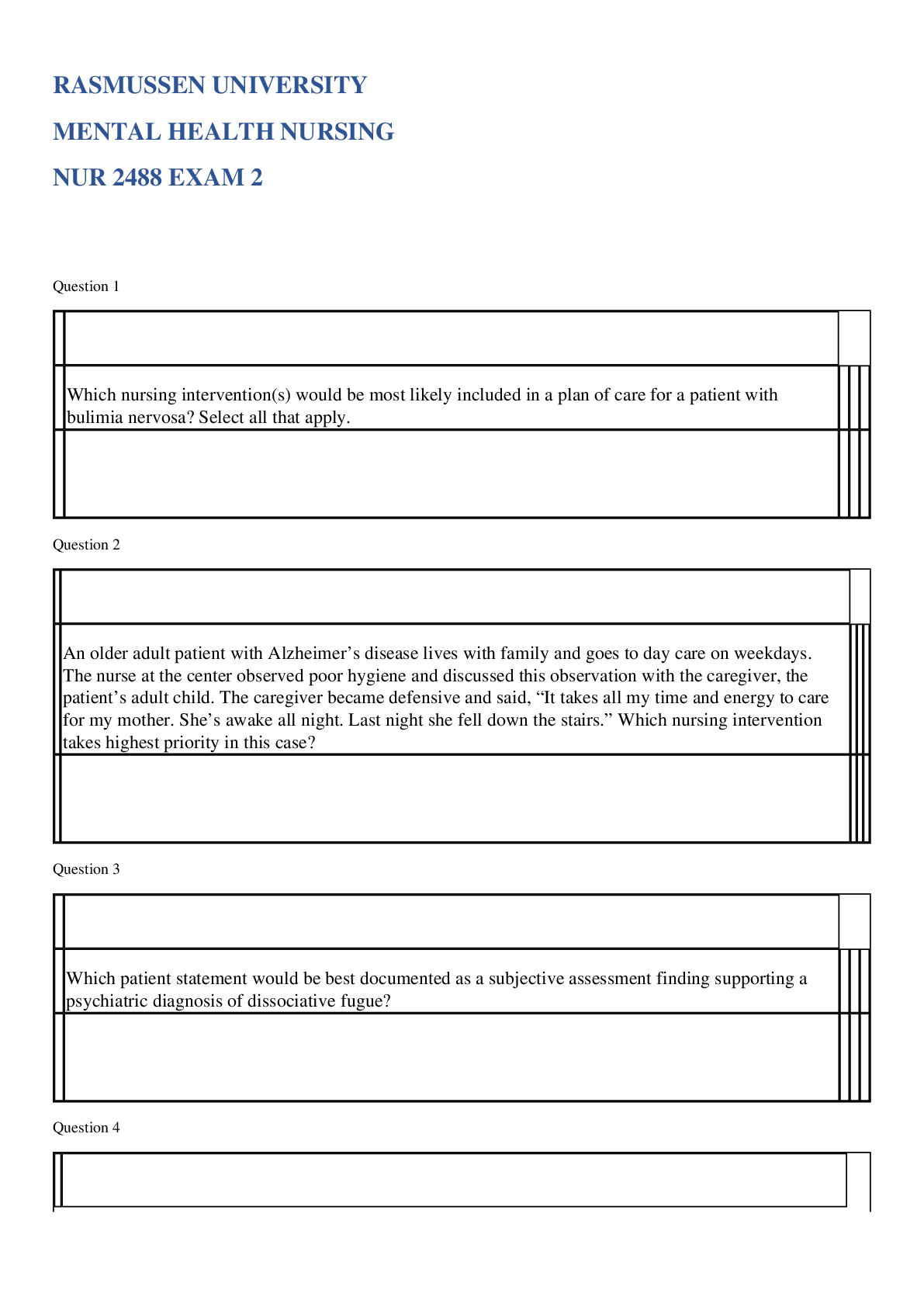
Buy this document to get the full access instantly
Instant Download Access after purchase
Add to cartInstant download
Reviews( 0 )
Document information
Connected school, study & course
About the document
Uploaded On
Dec 07, 2020
Number of pages
7
Written in
Additional information
This document has been written for:
Uploaded
Dec 07, 2020
Downloads
0
Views
101

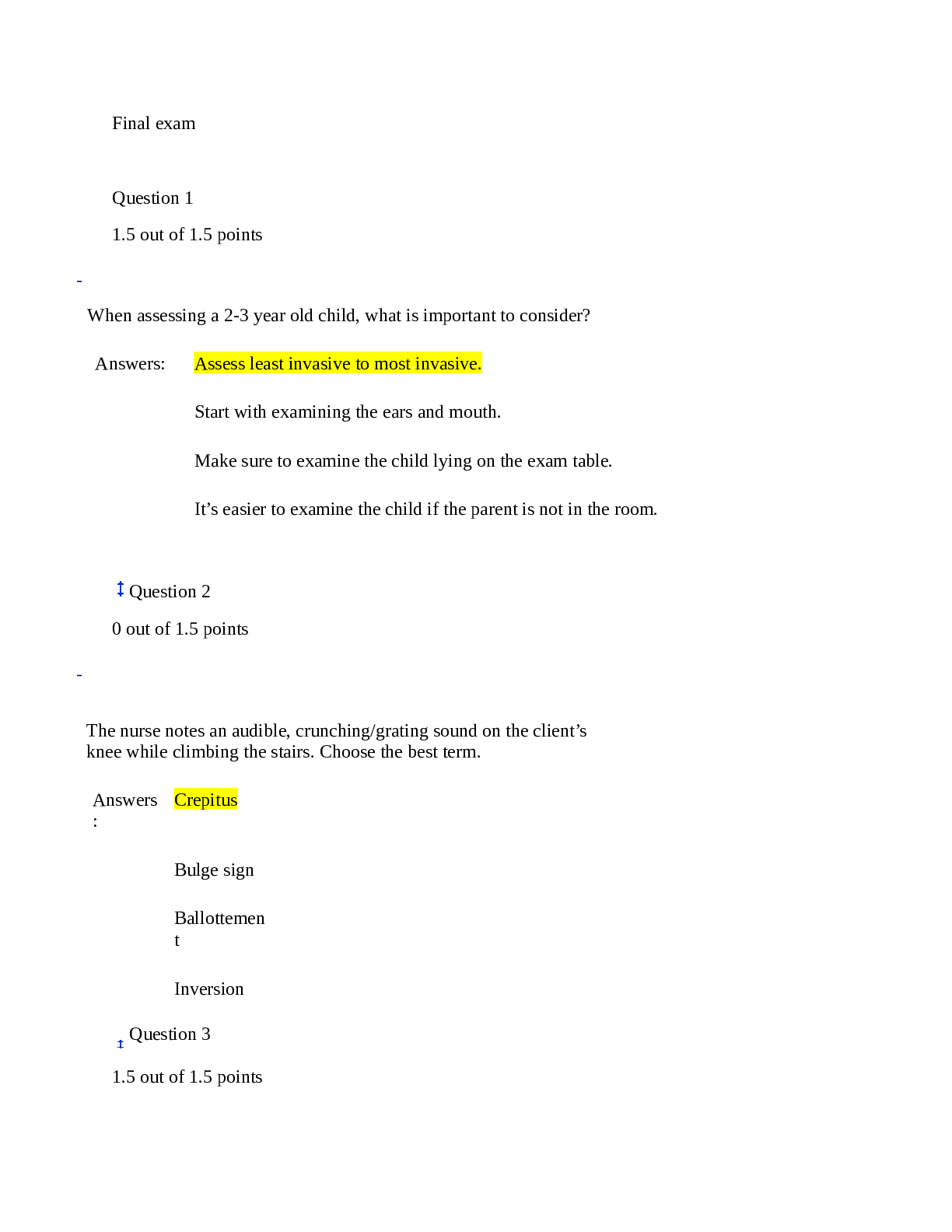
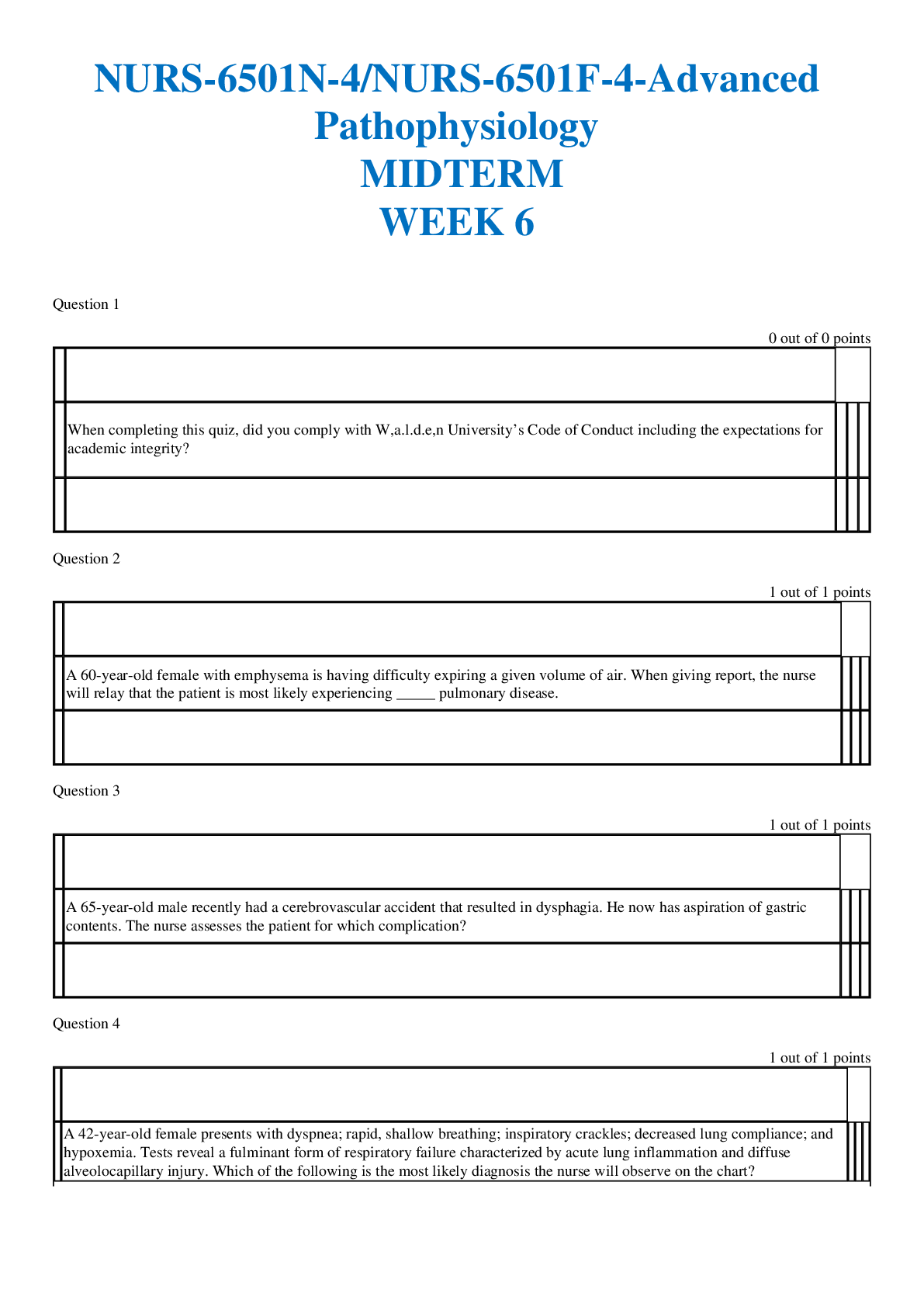
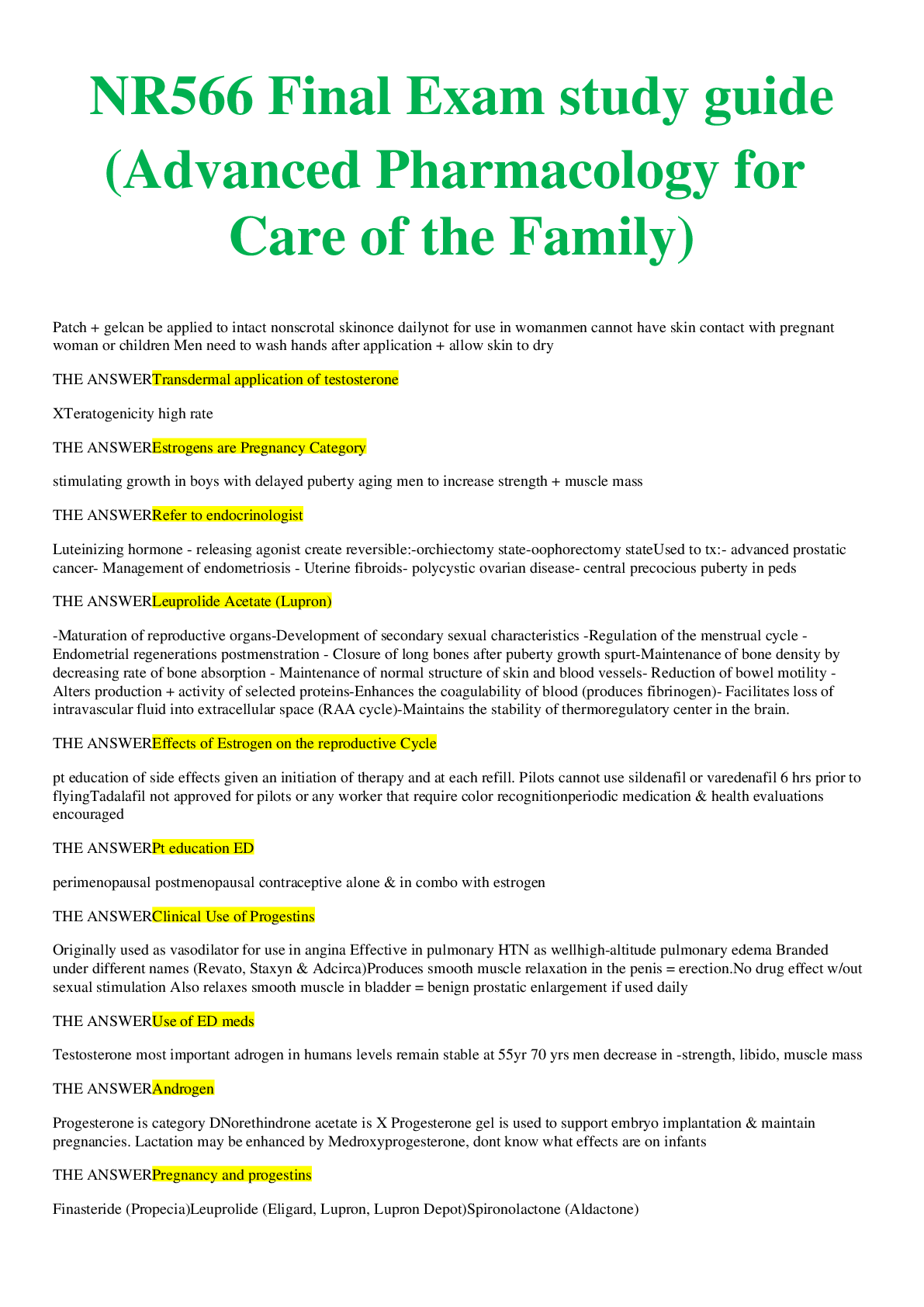
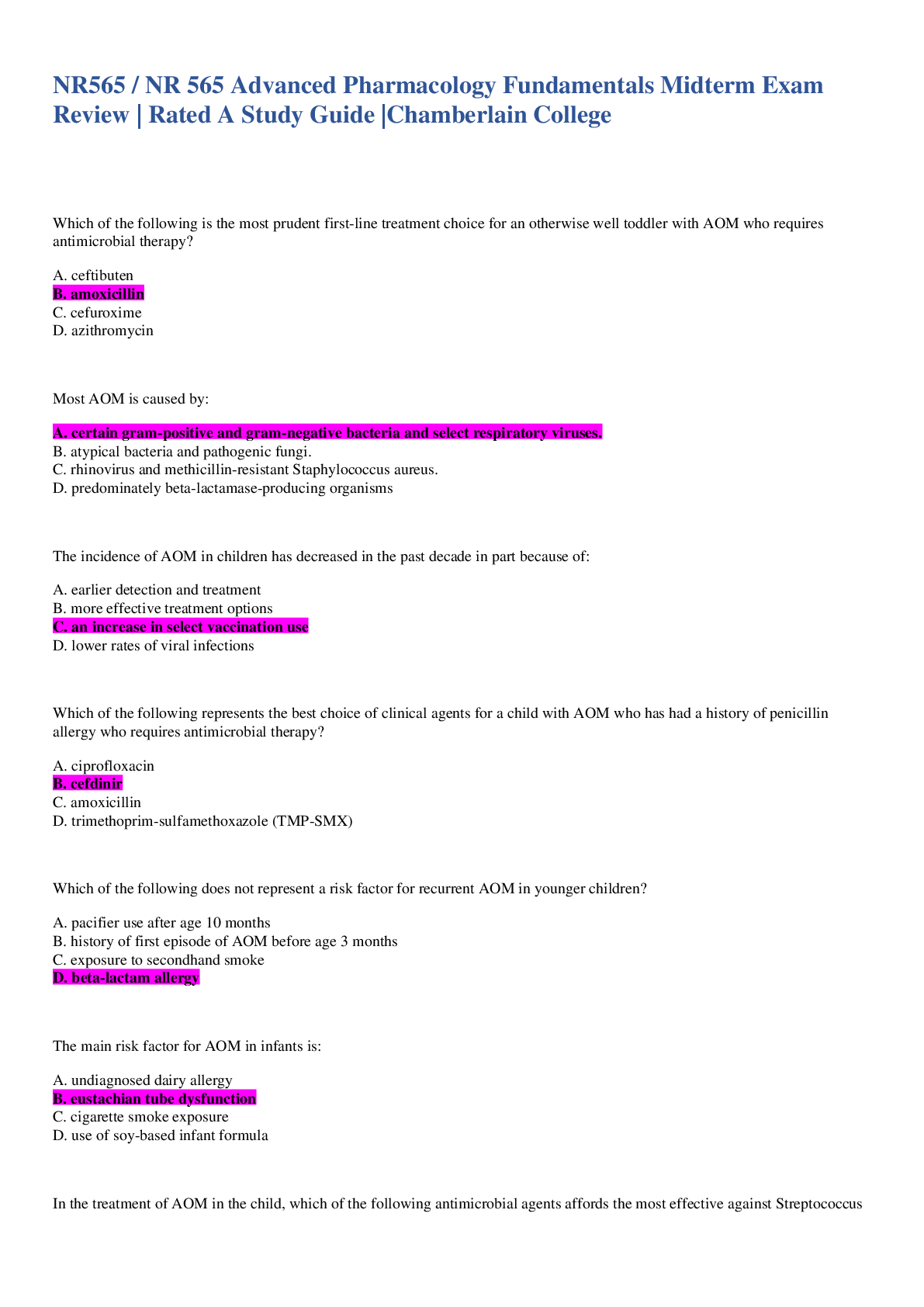
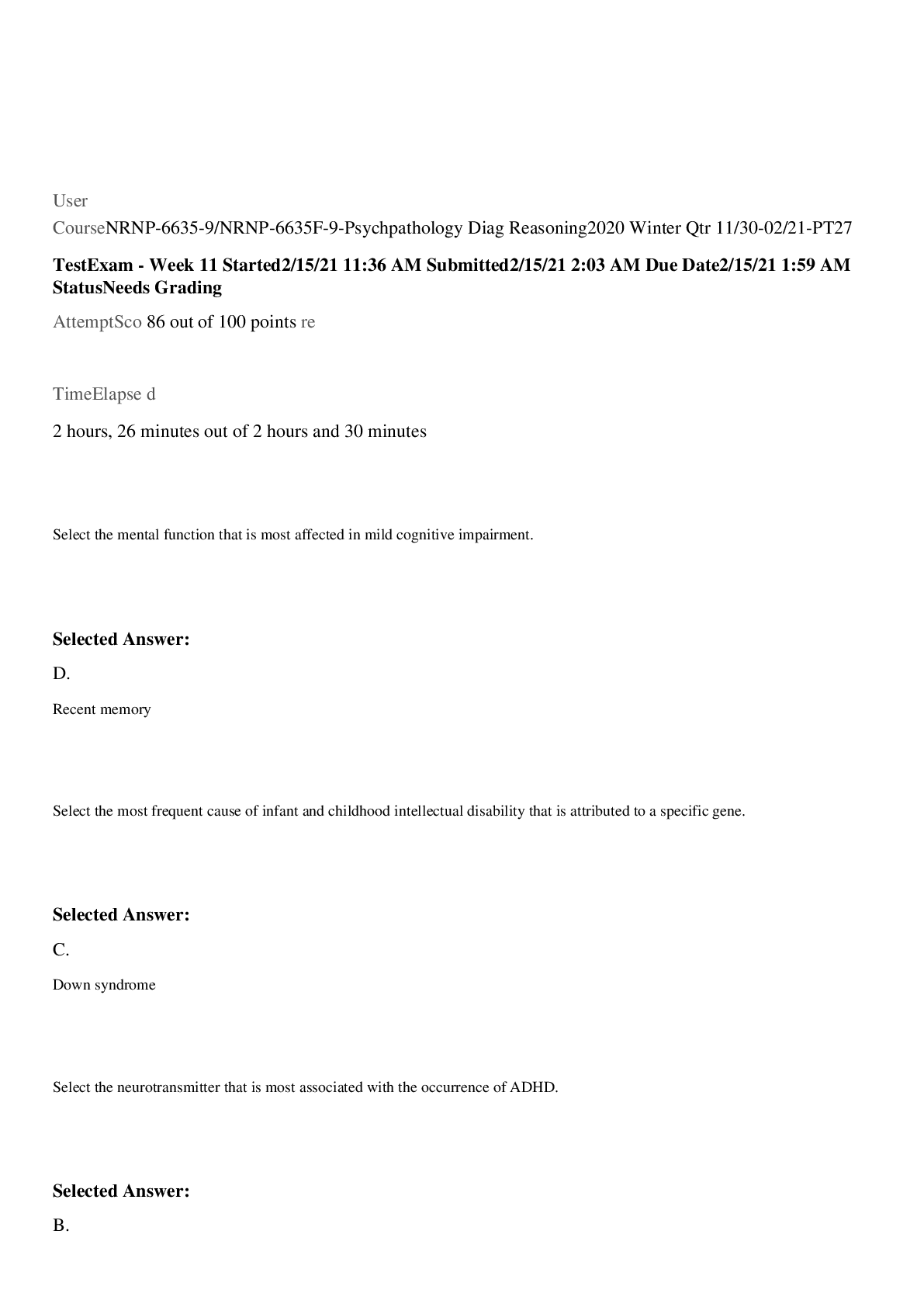

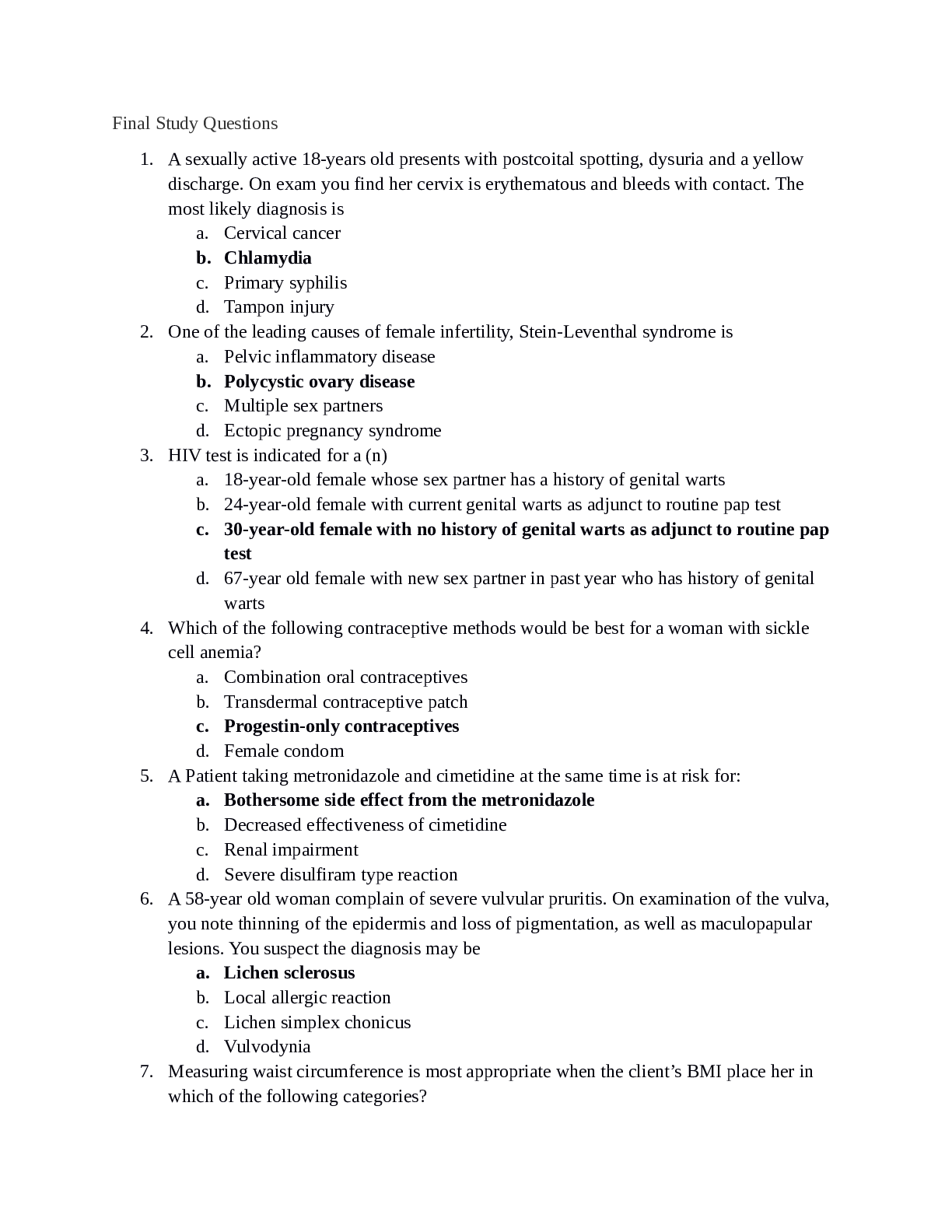
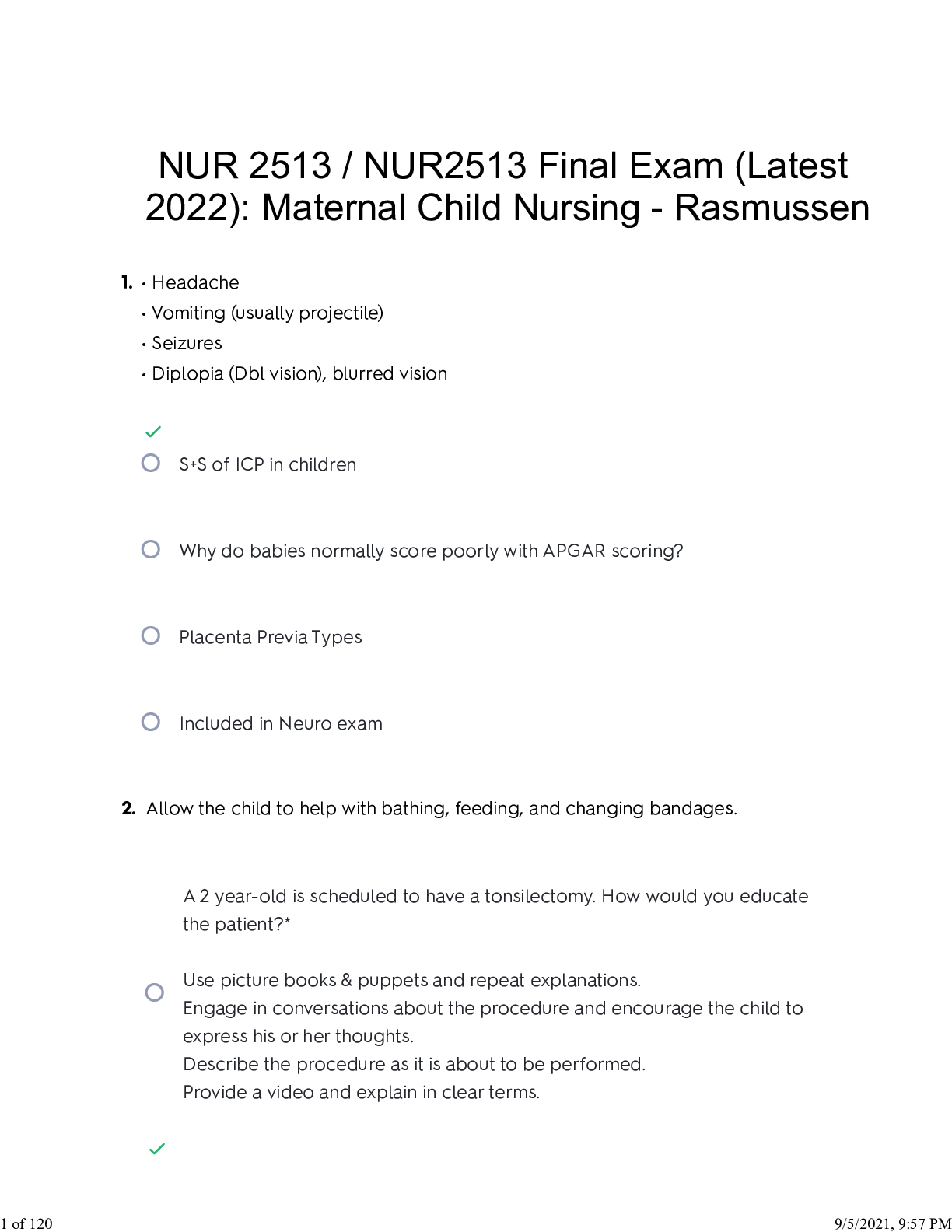
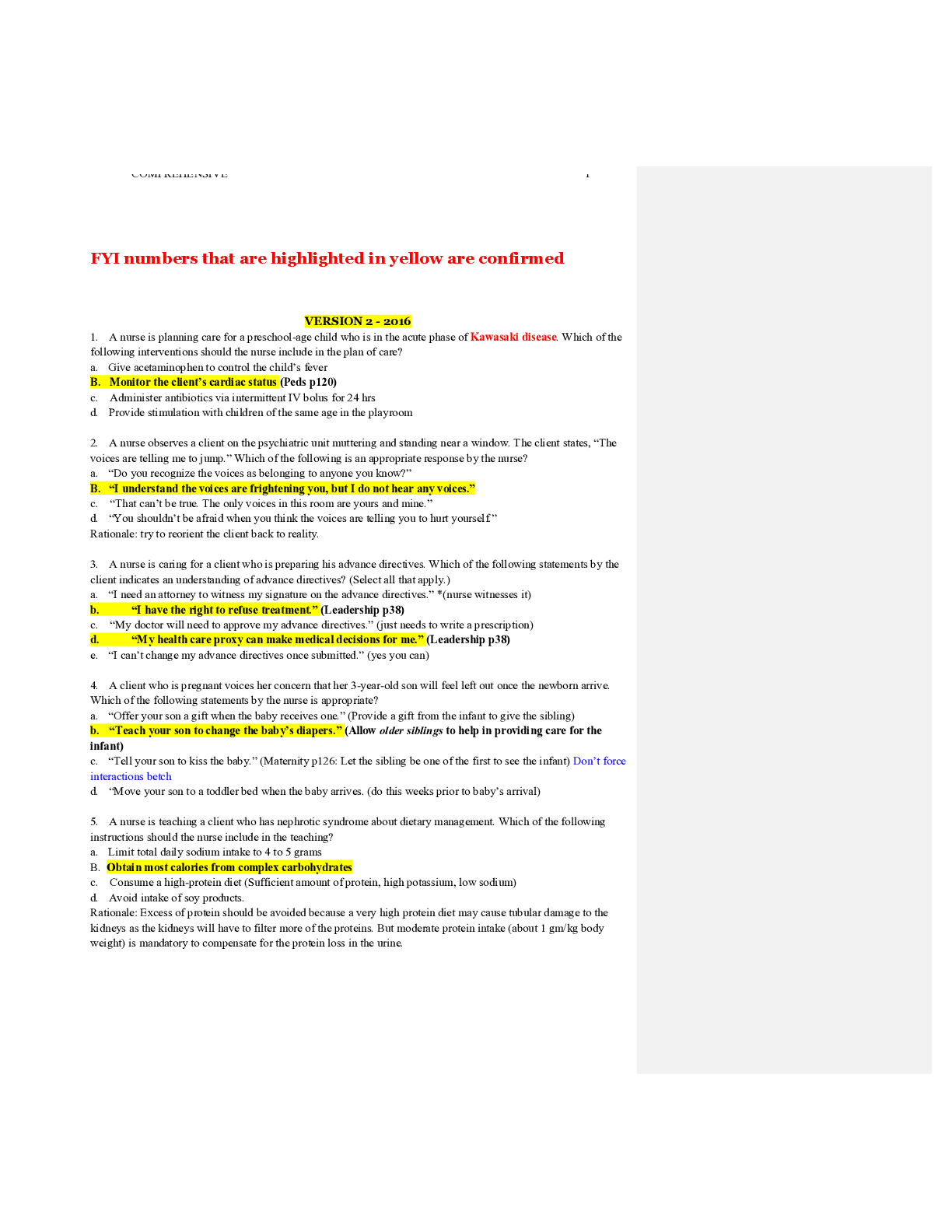
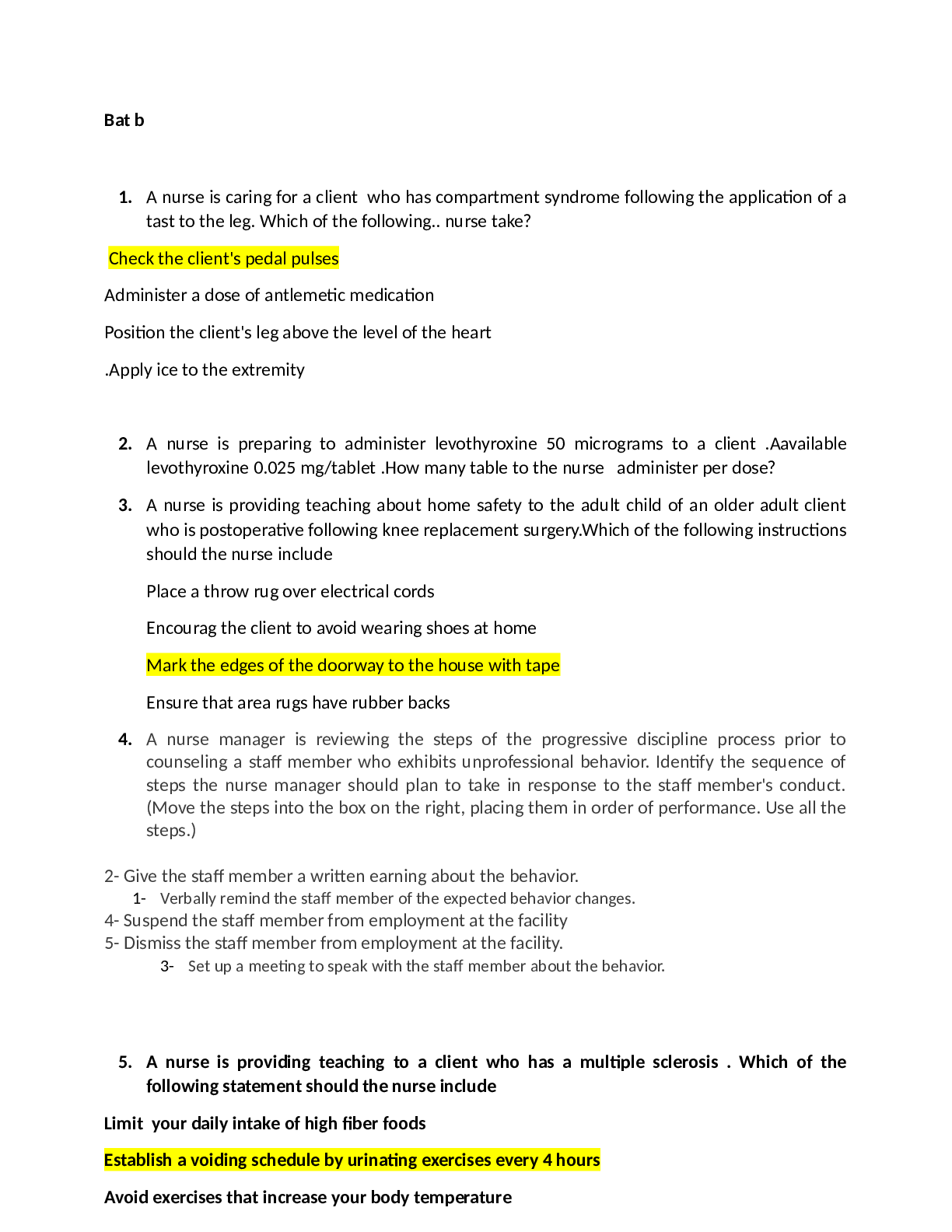
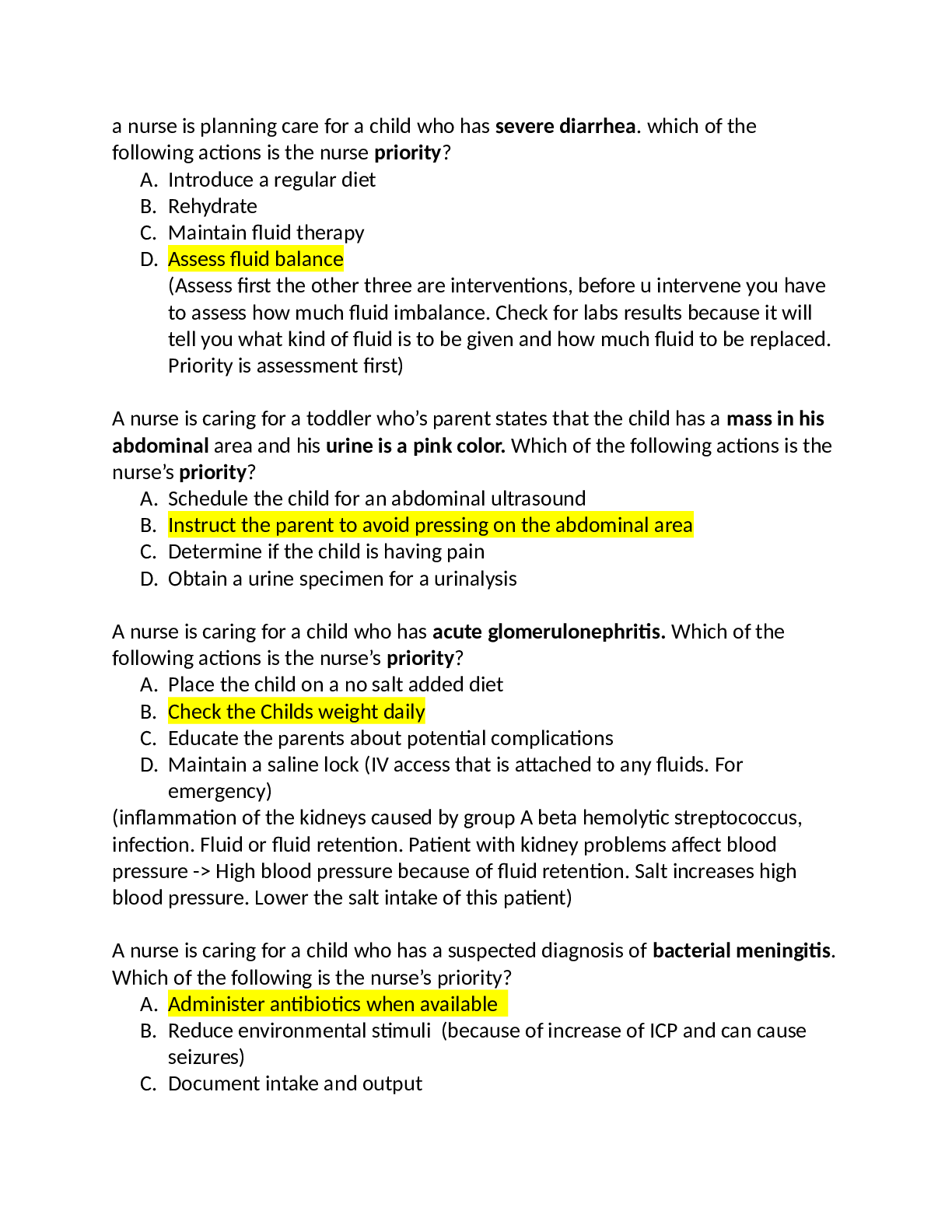
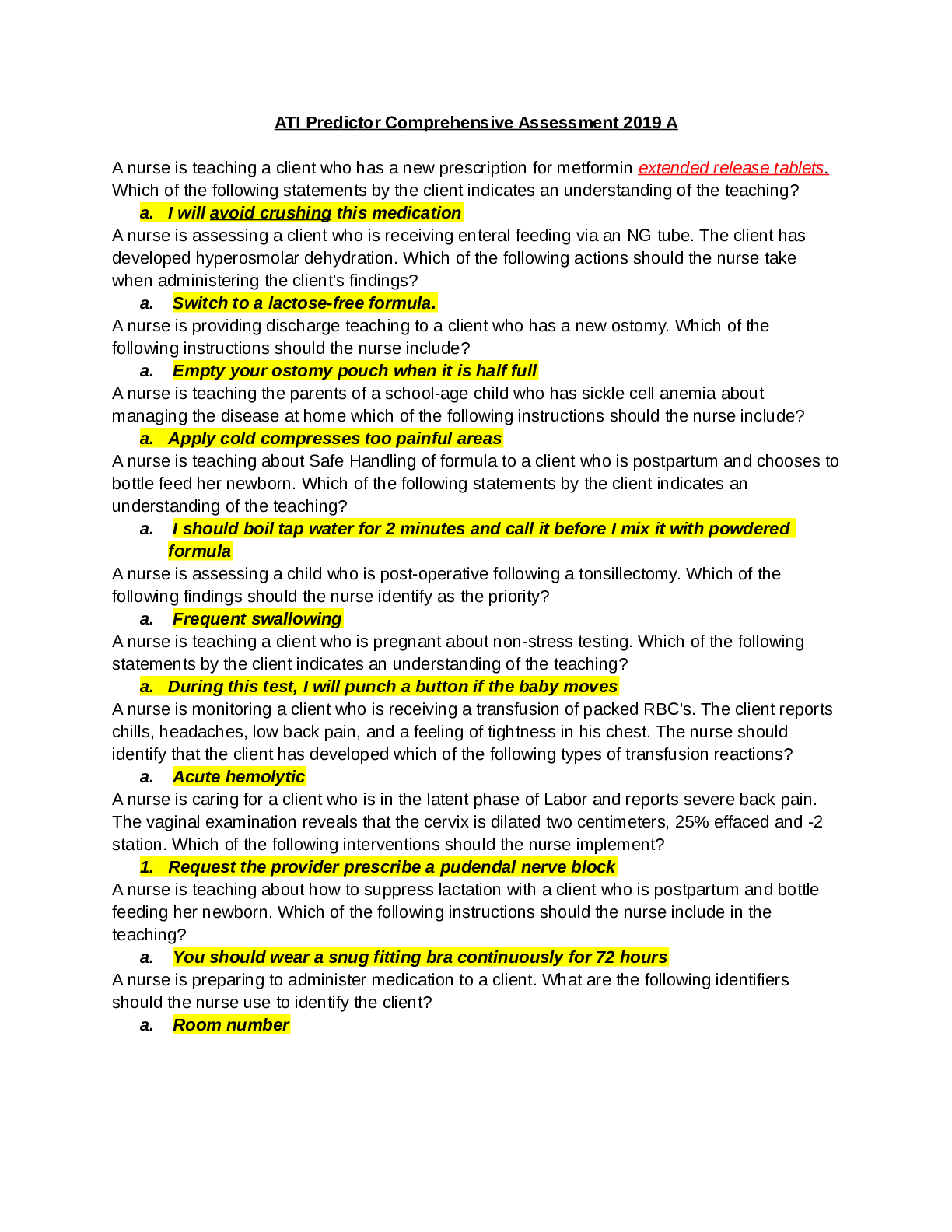
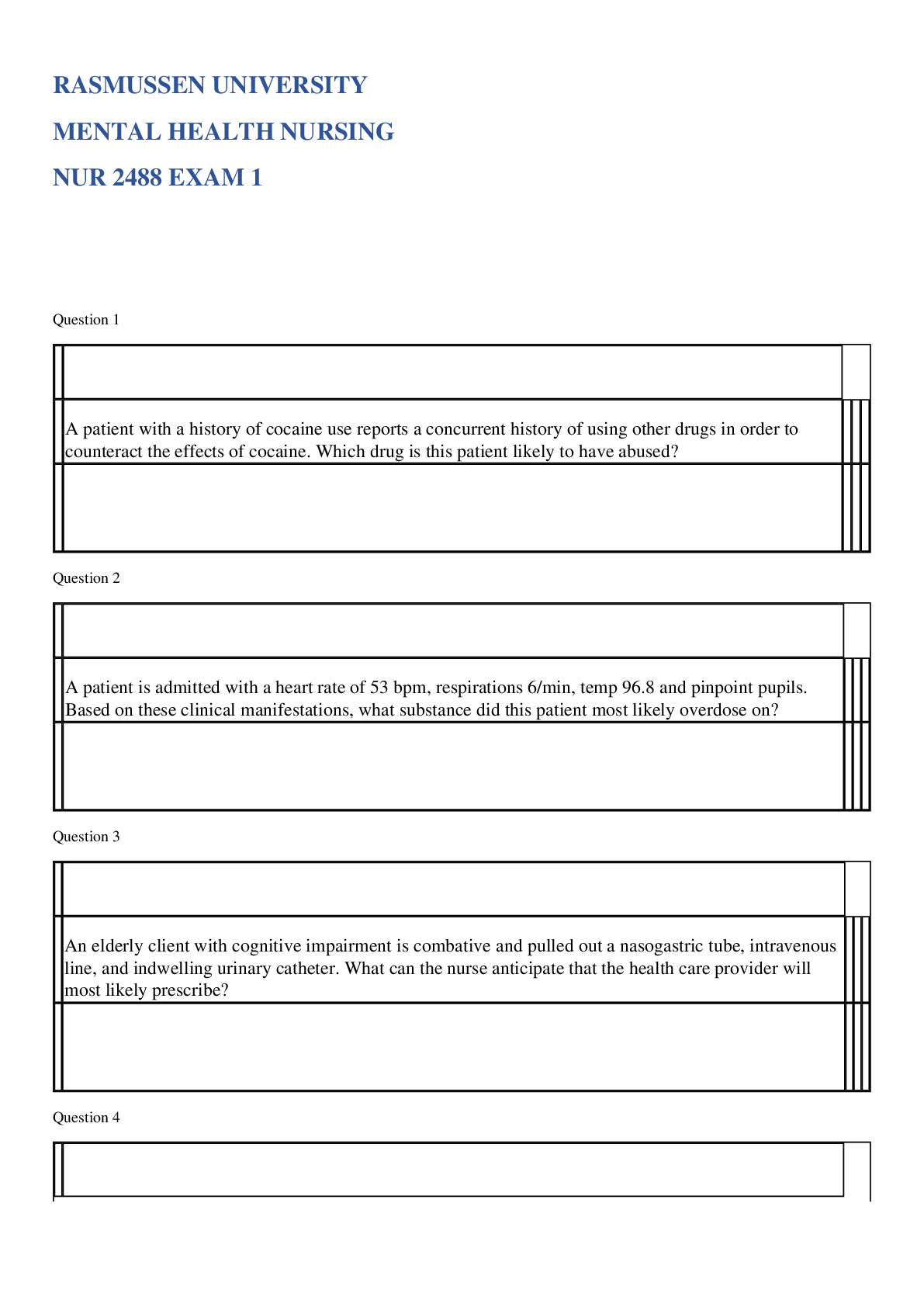
.png)
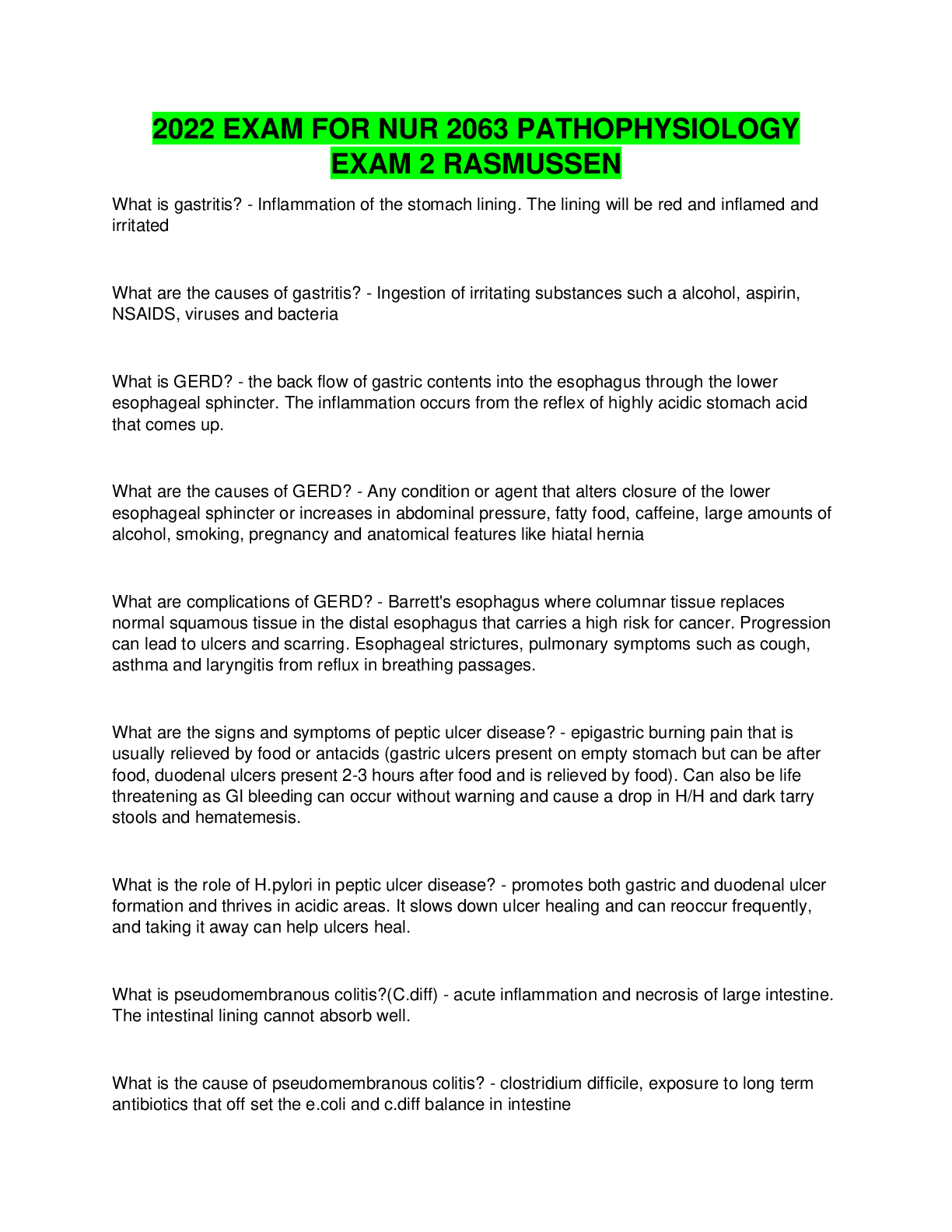
 NUR 2063 Essentials of Pathophysiology Exam 2 Rasmussen.png)
